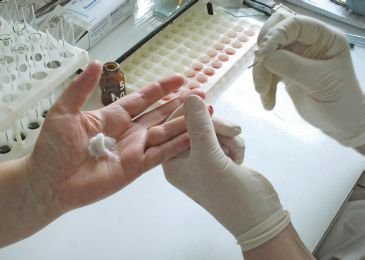Molecule that causes type 2 diabetes identified
August 20, 2013 | Tuesday | News | By BioSpectrum Bureau
Molecule that causes type 2 diabetes identified
One need not be a drug addict to increase the chances of developing diabetes. Action by a natural messenger in the human body Endocannabinoid which is similar to the active compound in Marijuana is what is triggering the onset of diabetes, according to researchers at the US National Institute on Alcohol Abuse and Alcoholism(NIAAA) and National Institute of Diabetes and Digestive and Kidney Diseases.
In studies in rats conducted by Dr George Kunos, scientificcdirector of NIAAA and Dr Monica Skarulin at the Diabetes center along with other researchers indicate that endocannabinoid activates macrophages in the pancreas. This in turn leads to activation of a protein complex within macrophages called Nirp3 inflammasome. This protein complex then releases molecules that cause the death of beta cells in the pancreas and leads to the onset of type 2 diabetes by reducing insulin production. Macrophages are immune system cells that are present in human tissue and have a key role in eliminating pathogens and dead cells from the body.
" This study is a significant milestone in an ongoing exploration of the endocannabinoid system's role in the metabolic complications of obesity," said NIAAA's acting director Dr Kenneth R Warren, in a statement released by NIH on August 19. The study has appeared in the online edition of science journal, Nature Medicine.
Added the lead author, Dr Kunos: " The identities of the molecular and cellular actors in the inflammatory processes that underlie type 2 diabetes have remained elusive. Our study connects endocannabinoids to an inflammatory cascade leading to the loss of beta cells in the pancreas, which is a hallmark of type 2 diabetes."
In the study obese rats were fed chemical compounds that depleted microphages that led to inflammation activation and onset of type 2 diabetes. Then when these rats were genetically altered to rid them of the endocannabinoid receptors, progression of type 2 diabetes slowed. This has led to the surmise that by selectively blocking the expression of cannabinoid receptors on macrophages, the beta cells in pancreases could be protected and thus reduce the severity of type 2 diabetes.
The researchers have concluded that it may be possible to identify suitable drug targets that could reverse the action of cannabinoids in triggering inflammation and death of beta cells leading to type 2 diabetes.
" To understand type 2 diabetes, a public health threat that affects young and old alike, we need to consider all the factors at play, " said Dr Monica Skarulis who was also part of the study. " We hope that what we have learned from this research will help us develop new strategies to prevent and treat the condition."
Researchers from the University of Colorado Medical Campus, Aurora, and the University of Massachusesetts Medical School, Worcester were also part of the study.









